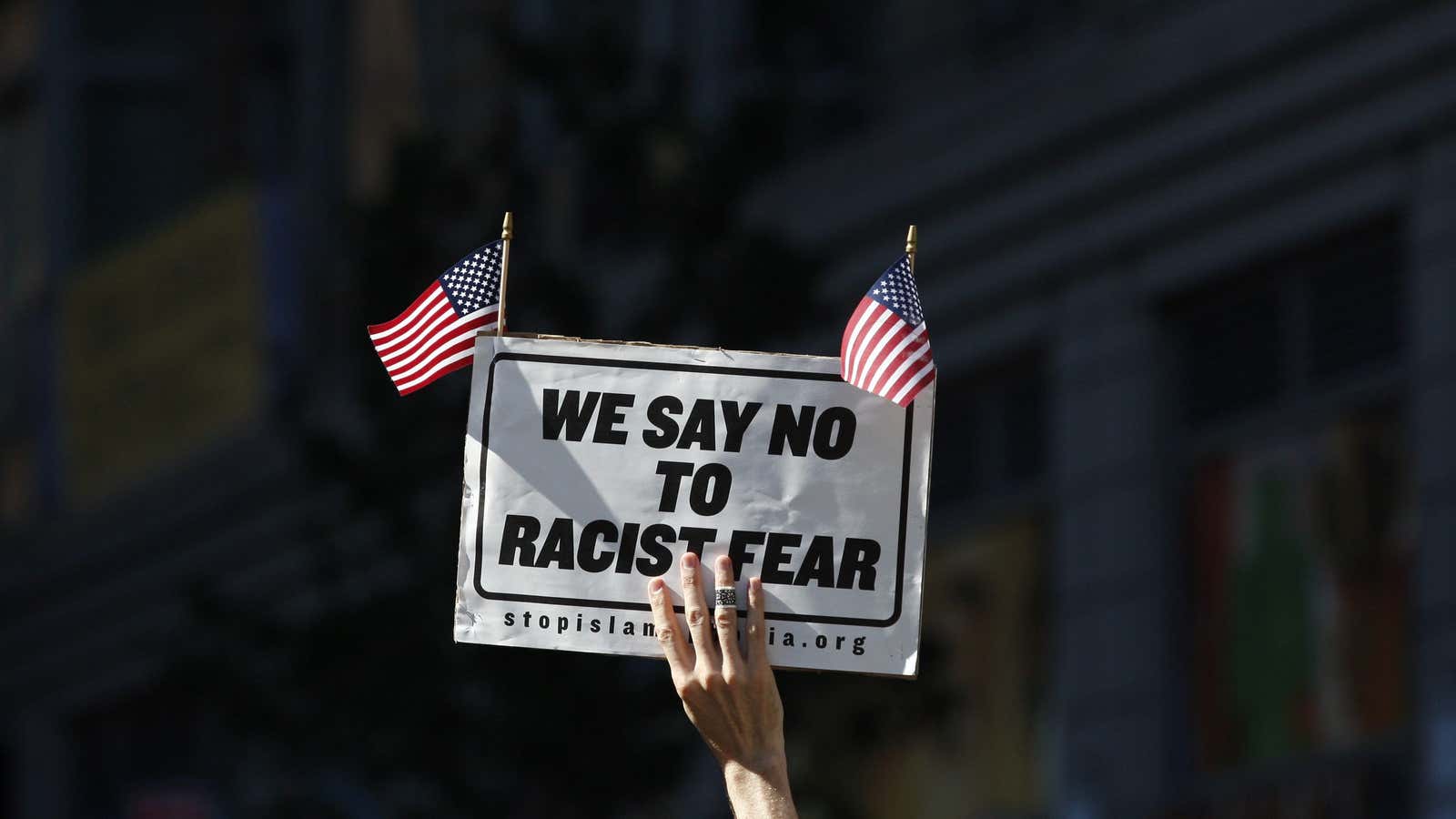Xenophobia
noun
1. fear or hatred of foreigners, people from different cultures, or strangers.
2. fear or dislike of the customs, dress, etc., of people who are culturally different from oneself.
Dictionary.com has named xenophobia its word of the year. Searches for xenophobia spiked on the online dictionary twice this June. The first time came shortly after the Brexit referendum, when there was a 938% search surge. The second appeared on June 30, when US president Barack Obama described then-presidential candidate Donald Trump’s rhetoric as “xenophobia.”
“This year in the United States we saw the rise of the alt-right, white nationalism, and other ideologies that promote hate, especially directed toward Muslims, Latinos, Jews, trans and queer communities, black America, and other nondominant groups,” the online dictionary said in a statement.
The word is not only mirroring a backwards economy, but also a politically charged world.
“As wages stagnated and economic forces began to make many Americans afraid, some politicians used that fear, they channeled that into xenophobia, fear of the other,” Robert Reich, former US Secretary of Labor and professor of public policy at University of California, Berkeley, said Nov. 28. “Such scapegoating is not new in the history of the word, but it is dangerous.”
The choosing of xenophobia by Dictionary.com comes two weeks after Oxford Dictionaries picked ”post-truth” as its word of the year. The term is often used to describe how voters’ emotions, appealed by political campaigns, are often disconnected from facts.




